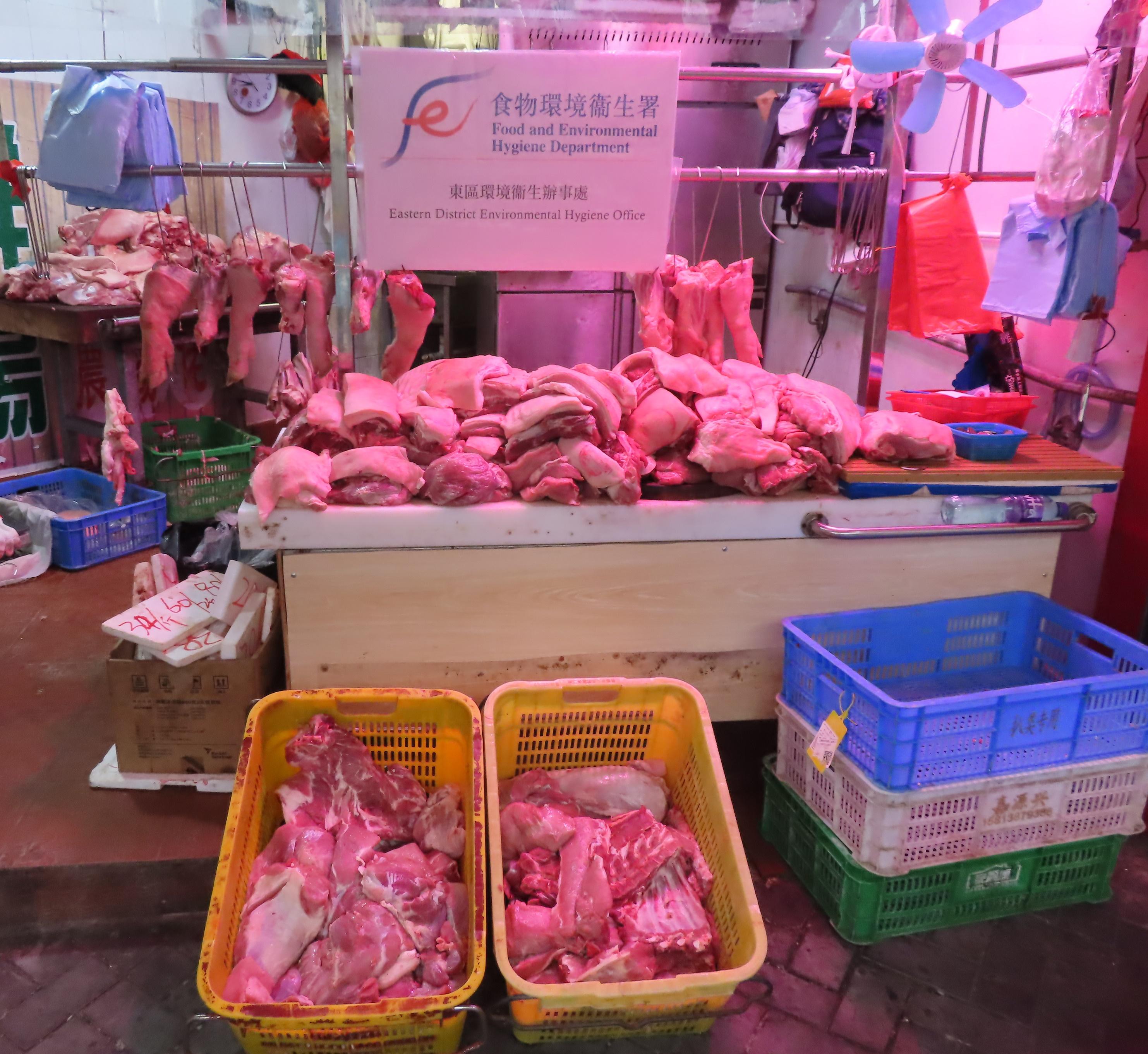FEHD strives to crack down on sale of chilled or frozen meat disguised as fresh meat (with photo)
The Food and Environmental Hygiene Department (FEHD) has all along been committed to combating the sale of chilled or frozen meat disguised as fresh meat, and in a blitz operation today (June 8) raided a licensed fresh provision shop (FPS) in the Chai Wan district suspected of selling chilled meat as fresh meat.
During the operation, FEHD officers raided a licensed FPS at Siu Sai Wan Road, Chai Wan, and destroyed about 178 kilograms of suspected chilled meat found. The licensee of the FPS is suspected of breaching the licensing condition for the display and sale of chilled meat as fresh meat, and the FEHD is proceeding with the cancellation of the FPS licence.
In addition, FEHD officers also initiated two prosecutions against the licensee of the FPS for dirtiness of the premises and dirty equipment. At the same time, FEHD officers also collected a pork sample for testing of preservatives and prosecution will be initiated for any contravention of relevant legislation.
A spokesman for the FEHD said, "Selling of chilled or frozen meat disguised as fresh meat breaches the licensing condition and causes food safety problems. Also, the operation of these profiteers is unfair to other shops that comply with the requirements."
The spokesman added, "Anyone selling chilled or frozen meat without permission commits an offence and is liable to a maximum fine of $50,000 and six months' imprisonment on conviction. The department will continue to conduct regular inspections at licensed FPSs and market meat stalls, and will actively handle the complaints received. In detecting any irregularities, the FEHD will carry out immediate investigation and take appropriate enforcement action. In addition, the FEHD also proactively investigates suspected violations from time to time and conducts surprise inspections and enforcement action as necessary. If there is sufficient evidence, prosecutions will be initiated and follow-up action will be taken on the breach of licensing conditions or tenancy agreements. The licences of fresh provision shops breaching the licensing conditions may be cancelled, while the tenancies of market meat stalls breaching the tenancy agreements may be terminated."
The spokesman stressed that the FEHD is very concerned and has been committed to combating the sale of chilled or frozen meat disguised as fresh meat by taking stringent enforcement action against the violations.
